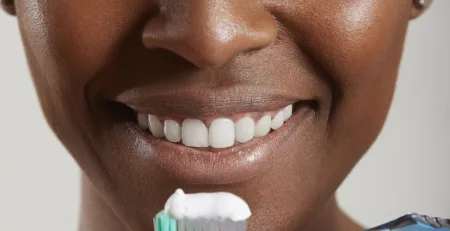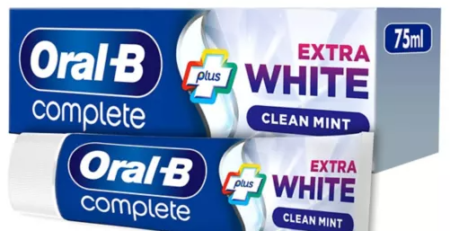All-Natural Toothpastes: Do They Really Work?
We look at Natural Toothpastes and their benefits!
Toothpaste is a product that we use every day to clean our teeth and maintain our oral health.
It contains various ingredients that help remove plaque, provide fluoride, and offer other benefits for oral health and beauty.fl
However, some people may prefer to use all-natural toothpastes that do not contain any synthetic or artificial ingredients.
They may believe that all-natural toothpastes are safer, healthier, or more eco-friendly than conventional toothpastes. But do all-natural toothpastes really work?
And what are the advantages and disadvantages of using them?
In this article, we will explore what all-natural toothpastes are, how they work, and what the pros and cons of using them are.
We will also provide some tips on how to choose and use all-natural toothpastes properly.
What are all-natural toothpastes?
All-natural toothpastes are toothpastes that use only natural ingredients derived from plants, minerals, or animals.
They do not contain any synthetic or artificial ingredients, such as abrasives, whitening agents, preservatives, or flavourings. Fluoride is a naturally accruing mineral.
Some examples of natural ingredients that can be found in all-natural toothpastes are:
- Coconut oil: This is a plant-based oil that has antibacterial, anti-inflammatory, and moisturising properties. It can help prevent plaque and gingivitis, as well as soothe dry or irritated gums1.
- Xylitol: This is a natural sugar alcohol that has a sweet taste and can prevent cavities by inhibiting the growth of bacteria that cause tooth decay2.
- Baking soda: This is a mineral salt that has abrasive and whitening properties. It can help remove surface stains and plaque from the teeth by physical friction3.
- Charcoal: This is a carbon-based substance that has absorbent and detoxifying properties. It can help remove surface stains and toxins from the teeth by chemical adsorption4.
- Aloe vera: This is a plant-based gel that has anti-inflammatory, antiseptic, and healing properties. It can help reduce inflammation and infection in the gums, as well as promote wound healing.
How do all-natural toothpastes work?
All-natural toothpastes work by using natural ingredients to clean, protect, and improve the appearance of the teeth. They work by:
- Removing plaque and food particles from the surface and gaps of the teeth by physical or chemical means. Plaque is a sticky film of bacteria that forms on the teeth after eating or drinking. If left untreated, plaque can cause cavities, gum disease, bad breath, and tooth discoloration.
- Providing antibacterial, anti-inflammatory, antiseptic, or deodorising effects by inhibiting the growth or activity of bacteria that cause tooth decay or gum disease. Bacteria are microorganisms that feed on sugar and produce acid that attacks the enamel and the gums.
- Whitening the teeth by removing surface stains or discoloration from the enamel by abrasion or adsorption. Enamel is the hard, outer layer of the teeth that protects them from damage and sensitivity. Enamel can be stained by various factors, such as food, drinks, tobacco, or ageing.
- Moisturising or soothing the gums by reducing dryness or irritation in the soft tissues. Gums are the pink flesh that surrounds and supports the teeth. Gums can be affected by various conditions, such as gingivitis, periodontitis, or ulcers.
What are the pros and cons of using all-natural toothpastes?
Using all-natural toothpastes can have some pros and cons for oral health and overall well-being. Some of the pros are:
- They can be safer or healthier for people who have allergies or sensitivities to synthetic or artificial ingredients. Some people may experience adverse reactions such as nausea, vomiting, rash, headache, or stomach pain when they use conventional toothpastes.
- They can be more eco-friendly or sustainable for people who care about the environment or animal welfare. Some conventional toothpastes may contain ingredients that are harmful or toxic to the environment or animals, such as microbeads, palm oil, or animal-derived products.
- They can offer natural or herbal benefits for people who prefer a more holistic or alternative approach to oral care. Some natural ingredients may have additional benefits for oral health and wellness, such as coconut oil’s moisturising effect or aloe vera’s healing effect.
Some of the cons are:
- They may not be as effective or reliable as conventional toothpastes in preventing cavities or gum disease. Fluoride is widely accepted as the most proven ingredient for strengthening enamel and preventing cavities. Without fluoride, the teeth may be more prone to acid attack and demineralisation.
- They may not be as regulated or tested as conventional toothpastes for safety or quality by official authorities. Some all-natural toothpastes may not have undergone rigorous scientific evaluation or approval by dental associations or health agencies. They may contain ingredients that are unsafe, ineffective, or contaminated.
- They may be more expensive or harder to find than conventional toothpastes in the market. Some all-natural toothpastes may have a higher price tag or a lower availability than conventional toothpastes. They may also have a shorter shelf life or a less appealing taste or texture.
How to choose and use all-natural toothpastes properly?
If you decide to use all-natural toothpastes, you should follow these tips to choose and use them properly:
- Consult your dentist: Your dentist can advise you on whether you need to use all-natural toothpastes or not, depending on your oral condition and risk factors. They can also recommend the most suitable product or brand for you and monitor the results and side effects of using it.
- Check the ingredients: You should read the label of the all-natural toothpaste and see what ingredients it contains and how much of them are present. You should avoid any ingredients that you are allergic or sensitive to or that may harm your teeth or gums. You should also look for ingredients that can benefit your oral health, such as antibacterial, anti-inflammatory, antiseptic, or whitening agents.
- Use the right amount and technique: You should use a pea-sized amount of all-natural toothpaste when brushing your teeth twice a day for two minutes each time. You should also use a soft-bristled toothbrush and a gentle circular motion to avoid damaging your enamel or gums. You should spit out the excess toothpaste after brushing, but do not rinse your mouth with water, as this can wash away the beneficial ingredients in the toothpaste.
- Supplement with other oral care products: You should use other oral care products in addition to all-natural toothpaste, such as mouthwash, floss, or interdental brushes. These products can help remove plaque and bacteria from the areas that the toothpaste cannot reach, such as between the teeth or under the gum line. They can also provide additional benefits such as fluoride, antibacterial, or anti-inflammatory effects.
Conclusion
All-natural toothpastes are toothpastes that use only natural ingredients derived from plants, minerals, or animals.
They do not contain any synthetic or artificial ingredients, such as abrasives, whitening agents, preservatives, or flavourings.
Some people may prefer to use all-natural toothpastes for various reasons, such as safety, health, or eco-friendliness.
However, all-natural toothpastes have some pros and cons for oral health and overall well-being. They can clean the teeth and offer natural or herbal benefits, but they may not prevent cavities or gum disease as effectively as conventional toothpastes.
They may also be less regulated or tested for safety or quality by official authorities. The best way to choose and use all-natural toothpastes properly is to consult your dentist and follow their recommendations.
They can advise you on the most suitable product or brand for you and monitor the results and side effects of using it.
They can also help you maintain good oral hygiene and prevent further plaque and tartar buildup or damage to your teeth.



Leave a Reply